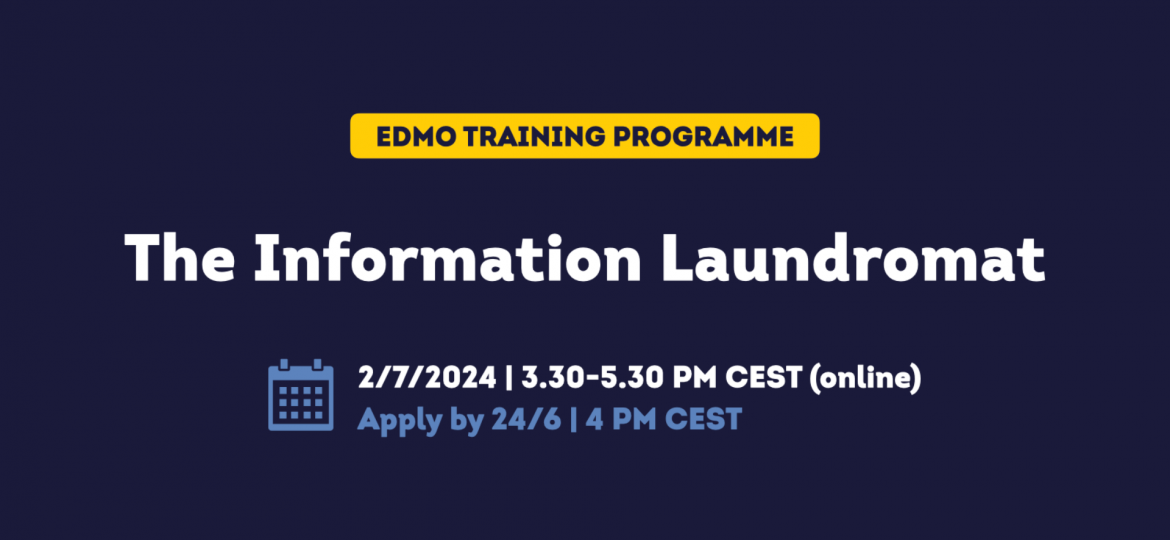
Low-cost digital publishing tools and online platforms allow malicious actors to spread false, misleading, and manipulated information through an ecosystem of cut-outs, proxies, aggregators, and amplifiers that can effectively mask the original source of information from information consumers. This process, known as “information laundering”, makes it difficult for news producers and consumers—even those with strong media literacy skills—to evaluate the biases, political agendas, and credibility of information sources. It also makes it more difficult for regulators and content moderators to effectively combat information threats, including those from hostile state actors.
This training will better prepare stakeholders to rapidly detect, document, and expose threat actor attempts to “launder” propaganda into the digital information environment by introducing them to the Information Laundromat, a lead generation tool used to determine if and how websites share architecture and content. The tool can be used to determine whether a queried article has been shared across other sites, including known propaganda or disinformation sites; whether those sites share technical indicators of significance (ad ids, bitcoin addresses, domain registration details, code structure, etc.) with one another; and how those sites leverage ad tech components and other financial mechanisms to profit from their manipulation activities. The goal of the session is to help users understand the mechanics of information laundering and methods to conduct their own investigations.
Target audience
The training is open to stakeholders working to tackle disinformation including researchers, fact-checkers, journalists and media literacy practitioners.
Meet your Trainers
Bret Schafer is a senior fellow, Media and Digital Disinformation, for the Alliance for Securing Democracy. Bret is the creator and manager of Hamilton 2.0, an online open-source dashboard tracking the outputs of Russian, Chinese, and Iranian state media outlets, diplomats, and government officials. As an expert in computational propaganda, state-backed information operations, and tech regulation, he has spoken at conferences around the globe and advised numerous governments and international organizations.
Peter Benzoni is an investigative data and research analyst on the information manipulation team at the Alliance for Securing Democracy (ASD) at the German Marshall Fund, where he manages ASD’s data-driven tools, develops new methodologies to combat information threats, and conducts open-source investigations. His work has been featured by Politifact, the New York Times, and others.
Applications are now closed


